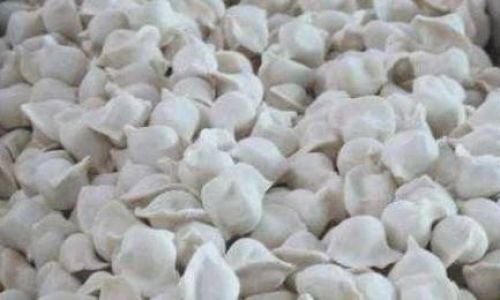Introduction
Tea, a beverage steeped in tradition and consumed by billions daily, has long been a subject of fascination for its perceived health benefits and cultural significance. Yet, beneath its comforting aroma and diverse flavors lies a question that has sparked debate among scientists, nutritionists, and tea enthusiasts alike: Is tea alkaline? At first glance, the query seems straightforward, but the answer unravels a complex tapestry of chemistry, biology, and dietary science. This article delves into the pH properties of tea, exploring how its composition, preparation, and consumption interact with the human body’s delicate acid-base balance. By examining scientific studies, dissecting myths, and clarifying misconceptions, we aim to provide a comprehensive understanding of whether tea deserves its reputation as an alkaline elixir or if its acidic nature tells a different story.
The Basics of pH and Alkalinity
To address whether tea is alkaline, one must first grasp the fundamentals of pH—a measure of hydrogen ion concentration in a solution. The pH scale ranges from 0 to 14, with 7 being neutral. Solutions below 7 are acidic (e.g., lemon juice at pH 2), while those above 7 are alkaline (e.g., baking soda at pH 9). The human body tightly regulates its internal pH, with blood hovering around 7.4, slightly alkaline. Deviations from this range can disrupt metabolic processes, highlighting the importance of understanding how dietary choices influence this balance.
Alkaline diets, which emphasize foods and beverages with a pH above 7, have gained popularity for their supposed health benefits, including bone health preservation and reduced inflammation. However, the alkaline diet movement often oversimplifies the relationship between food pH and bodily pH. Critics argue that the body’s buffering systems neutralize most dietary acids, rendering the alkaline vs. acidic food debate moot. Nevertheless, the question persists: Where does tea stand in this equation?

The Composition of Tea: A Chemical Breakdown
Tea leaves (Camellia sinensis) contain a cocktail of bioactive compounds, including polyphenols (catechins, theaflavins), caffeine, amino acids (like L-theanine), and minerals (potassium, magnesium, fluoride). The specific composition varies by tea type—green, black, oolong, white—due to differences in processing. For instance, green tea is minimally oxidized, retaining more catechins, while black tea undergoes full oxidation, altering its chemical profile.
When brewed, these compounds leach into the water, creating the beverage we consume. The pH of brewed tea depends on several factors: the tea’s variety, brewing time, temperature, and even the water’s mineral content. Generally, freshly brewed tea leans toward acidity, with pH values ranging from 4.9 to 5.5. For context, coffee typically falls between 4.85 and 5.1, while bottled water hovers around 7. This places tea firmly in the acidic category—a fact that contradicts some alkaline diet proponents’ claims.
The Brewing Process: How Steeping Affects pH
Brewing tea is an art and a science. The duration and temperature of steeping influence not only flavor but also pH. Longer steeping times extract more tannins and polyphenols, which are weakly acidic. For example, a 3-minute steep of black tea may yield a pH of 5.0, while a 10-minute steep could drop it to 4.5. Similarly, hotter water accelerates extraction, potentially lowering pH further. However, these shifts are marginal and unlikely to drastically alter the beverage’s overall acidity.
Interestingly, cold-brewed tea tends to be less acidic than its hot counterpart. The slower extraction process reduces the release of acidic compounds, resulting in a smoother, milder flavor. This method has gained traction among those seeking to minimize acid exposure, though the pH difference remains relatively small.

Tea Types and Their pH Profiles
Not all teas are created equal. Let’s examine how different varieties fare on the pH scale:
-
Green Tea: With minimal oxidation, green tea retains high levels of catechins, which are slightly acidic. Brewed green tea typically has a pH between 7 and 10, but wait—that’s alkaline? Hold on. This is a common misconception. While some sources cite green tea’s pH as neutral or mildly alkaline, most studies confirm it falls in the acidic range (5–6). The confusion arises from the presence of alkaline minerals like potassium, which may buffer the solution’s acidity without changing its pH.
-
Black Tea: Fully oxidized black tea contains theaflavins and thearubigins, which contribute to its darker color and robust flavor. Brewed black tea usually has a pH of 4.9–5.5, making it more acidic than green tea.
-
Oolong Tea: Semi-oxidized oolong occupies a middle ground, with pH values similar to black tea.

-
White Tea: The least processed variety, white tea, often has a pH around 5.2–5.8, depending on brewing time.
-
Herbal Teas: Technically not “tea” (since they don’t come from Camellia sinensis), herbal infusions like chamomile, peppermint, or hibiscus vary widely. Many herbal teas are acidic, with hibiscus tea being notably so (pH 3–4). However, some blends, like rooibos, may approach neutrality (pH 6–7).
The Alkaline Aftertaste: Digestion and Metabolism
Here’s where the debate intensifies: While brewed tea is acidic, some argue that its post-digestive effects render it alkaline-forming. This concept hinges on the idea that certain foods leave behind alkaline residues after metabolism, even if they’re acidic initially. For example, lemons are acidic (pH 2–3) but metabolize into alkaline byproducts. Could tea follow suit?
Research suggests that tea’s mineral content—particularly potassium, calcium, and magnesium—may contribute to an alkaline ash residue. These minerals act as buffers in the body, potentially neutralizing acidity. However, the extent of this effect is debated. A 2018 study in the Journal of Food Science found that while green tea extract increased urine pH (a sign of alkalinity), the impact on blood pH was negligible. This indicates that tea may have a mild alkaline-forming effect without significantly altering the body’s overall acid-base balance.

Health Implications: Acidic Tea and Dental Health
If tea is acidic, does it harm dental health? Acidic beverages can erode tooth enamel over time, leading to sensitivity and decay. However, tea’s pH alone doesn’t tell the full story. Tannins and polyphenols in tea may inhibit bacterial growth, reducing plaque formation. A 2020 study in the Journal of Dentistry reported that green tea’s antimicrobial properties offset some of its acidic effects, making it less harmful than sugary sodas or citrus juices. Still, dentists recommend rinsing the mouth with water after drinking tea to minimize enamel exposure.
The Alkaline Diet Myth: Separating Fact from Fiction
Advocates of alkaline diets claim that consuming alkaline foods prevents osteoporosis, cancer, and chronic diseases. However, the body’s renal and respiratory systems meticulously regulate blood pH, making dietary influences largely irrelevant. A 2016 review in the British Journal of Nutrition concluded that while alkaline diets may promote fruit and vegetable intake, their direct health benefits are unsupported by evidence. Tea, whether acidic or alkaline, is unlikely to sway systemic pH significantly.
Cultural Perspectives: Tea in Traditional Medicine
Throughout history, tea has been revered in traditional medicine systems like Ayurveda and Traditional Chinese Medicine (TCM). In TCM, tea is considered “cooling” or “warming” based on its type and preparation, concepts that loosely align with modern pH discussions. For instance, green tea is thought to clear heat (similar to reducing acidity), while black tea is seen as warming. These classifications reflect tea’s holistic role in balancing the body’s “energies” rather than its literal pH.
Modern Science vs. Ancient Wisdom: Finding Common Ground
While traditional practices often attribute alkaline properties to tea, modern chemistry provides a nuanced perspective. Tea’s brewed acidity doesn’t negate its potential health benefits, which include antioxidants, polyphenols, and caffeine’s stimulant effects. The key lies in moderation and context: pairing tea with meals, avoiding excessive consumption, and maintaining overall dietary balance.

Conclusion: The pH Paradox of Tea
The question “Is tea alkaline?” defies a simple yes or no. Brewed tea is inherently acidic, with pH values influenced by type, brewing method, and additives. However, its mineral content and metabolic byproducts may impart a mild alkaline-forming effect post-digestion. Yet, this effect is too subtle to impact systemic pH significantly, debunking alkaline diet myths.
For consumers, the takeaway is clear: Enjoy tea for its cultural richness, flavor, and antioxidants, but don’t rely on it to alter your body’s acid-base balance. Whether you prefer the grassy notes of green tea or the malty depth of black tea, its role in health is multifaceted—and not solely defined by a number on the pH scale.
Final Thoughts: Beyond the Beaker
Tea’s allure extends beyond chemistry. It’s a ritual, a companion, a bridge between cultures. While science dissects its pH, the true magic lies in the experience it offers—a moment of calm, a shared conversation, a steaming mug that warms the hands and soothes the soul. So, the next time you sip your favorite brew, savor it not just as an acidic or alkaline substance, but as a testament to humanity’s enduring bond with nature’s bounty.





0 comments